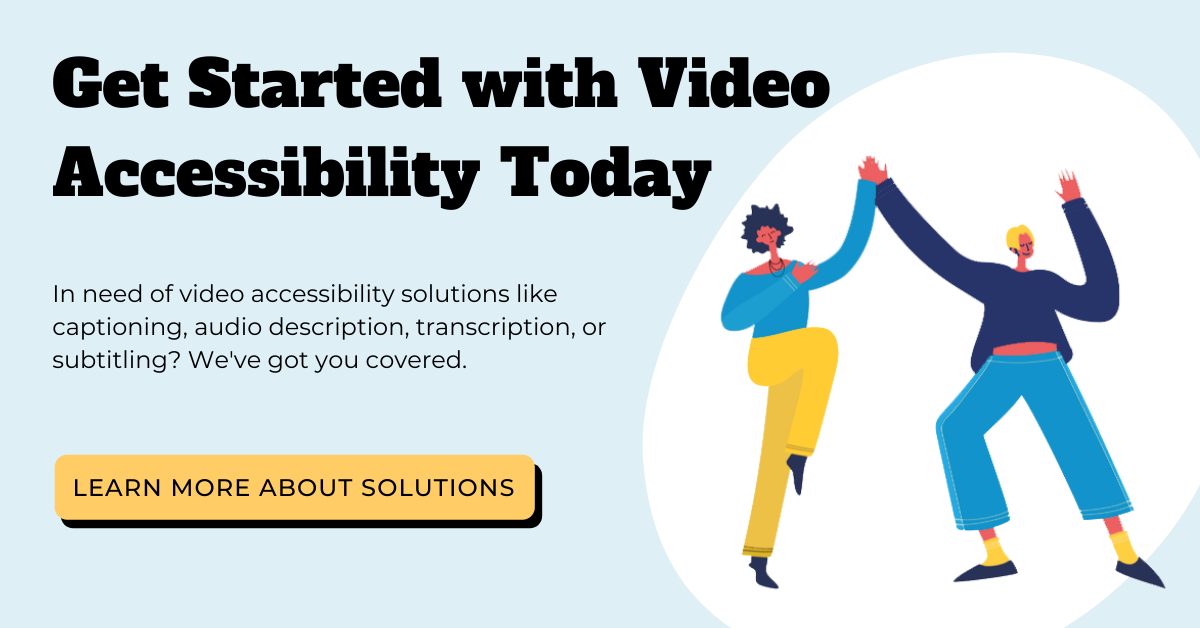UK Digital Accessibility Regulations Update
Updated: August 22, 2023
Did you know that September 23, 2020 marked the deadline for all public sector bodies in the United Kingdom to comply with updates to UK digital accessibility regulations?
The new UK digital accessibility regulations initially came into force for public sector bodies in the United Kingdom on September 23, 2018. The full name for the new accessibility regulations is Public Sector Bodies (Websites and Mobile Applications) (No. 2) Accessibility Regulations 2018.
The new regulations require public sector bodies to meet accessibility standards like those of WCAG 2.1 AA on their websites and/or mobile apps. It also mandates that they publish an accessibility statement on their websites and/or mobile apps and review and update the statement regularly.
Who Must Meet the UK Digital Accessibility Regulations?
The new UK digital accessibility regulations apply to public sector bodies in the United Kingdom.
A public sector body refers to the State, regional or local authorities, bodies governed by public law, and associations formed by one or more of the authorities in regional or local bodies or bodies governed by public law.
Those that are exempt from the regulations include public service broadcasters and their subsidiaries, non-governmental organizations unless they provide services that are essential to the public or specifically address the needs of people with disabilities, and schools or nurseries.
Note: The new regulations do not require public sector bodies to comply with the accessibility requirements if doing so imposes an undue burden.
Video Accessibility Compliance
This white paper is designed to equip you with knowledge and current best practices necessary to make your web videos accessible to all users.
What Are the Requirements of the Regulations?
Public bodies must adhere to a European standard called EN 301 549 to comply with the UK digital accessibility regulations, which are aligned to WCAG 2.1 Level AA standards. Just as it says in WCAG’s guidelines, an accessible website or mobile app under these regulations must be “perceivable, operable, understandable, and robust.”
Websites and mobile apps must also provide a public accessibility statement. In addition to reviewing and updating the statement regularly, the elements within accessibility statements must:
-
- Be provided in an accessible format;
- Explain why particular contents are currently non-accessible;
- Describe any accessible alternatives provided;
- Offer contact information to submit requests and to cite violations.
Public sector bodies that already meet WCAG 2.1 AA accessibility standards and whose websites or mobile apps already contain a public accessibility statement are likely currently meeting the new legal requirements.
Exemptions
Content exempt from these regulations include but are not limited to:
- Non-essential documents published before September 23, 2018;
- Live time-based media;
- Pre-recorded audio and video published before September 23, 2020.
- Third-party content not funded or under the control of the body.
When Must Public Bodies Meet the UK Digital Accessibility Regulations?
All public sector bodies in the UK must make all existing websites accessible by September 23, 2020. The compliance date for mobile applications is June 23, 2021.
The deadlines to meet the new UK digital accessibility regulations differ depending on circumstances:
- By September 23, 2019, : Websites published or substantially revised after September 23, 2018, and new content published on intranets.
- By September 23, 2020: Any existing websites that were published before September 28, 2018.
- By Jun 22, 2021: All mobile applications.
Governing Bodies and Enforcement
On behalf of the Minister for the Cabinet Office, Government Digital Services (GDS) is responsible for monitoring public sector websites and apps on their accessibility from 2020 on. GDS must submit a report to the European Commission on the outcome of the monitoring every three years.
If the public sector body is required to comply with the Equality Act 2010, the enforcing body is the Equality and Human Rights Commission.
If the public sector body is required to comply with the Disability Discrimination Act 1995, the enforcing body is the Equality Commission for Northern Ireland.
Organizations that do not meet the accessibility requirement or fail to provide a satisfactory response to a request to produce information in an accessible format will be considered in breach of the Equality Act 2010 and the Disability Discrimination Act 1995.
Why Have the New Regulations Been Enacted?
In the UK, there is an existing legal obligation under the Equality Act 2010 that all service providers in the UK provide reasonably accessible accommodations. Digital accessibility is not a new initiative in the UK, but until recently, there were no specific regulations to enforce specific accessibility standards.
That’s where the Public Sector Bodies (Websites and Mobile Applications) (No. 2) Accessibility Regulations 2018 comes in:
These new UK digital accessibility regulations provide set standards to which public sector bodies are held accountable. The aim of the regulations is to ensure that services provided by public sector bodies are accessible to everyone, including those with disabilities.
The new UK digital accessibility regulations closely align with WCAG 2.1 AA standards, which calls for accessible video features such as captioning and audio description. If you’re in need of video accessibility solutions for your content library, we’re here to help. Get started today!
This blog was originally published in March 2020 and has since been updated for comprehensiveness, clarity, and accuracy.
This blog post is written for educational and general information purposes only, and does not constitute specific legal advice. This blog should not be used as a substitute for competent legal advice from a licensed professional attorney in your state.
Further Reading

Subscribe to the Blog Digest
Sign up to receive our blog digest and other information on this topic. You can unsubscribe anytime.
By subscribing you agree to our privacy policy.











